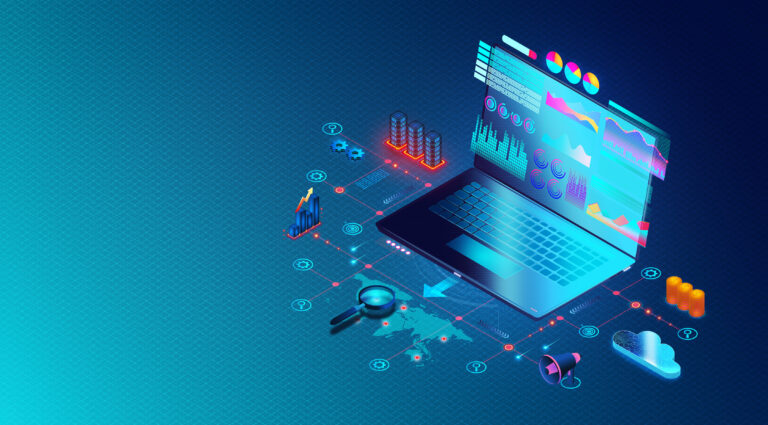
The B2B eCommerce environment has developed significantly over the last decade or so. No matter what sector you focus on, more innovations have emerged that can help to make your business more efficient and effective. However, too many companies still insist on keeping hold of the manual processes, often through budgetary concerns.
Yet, this can hold you back from effectively addressing some of the more difficult challenges you face. Adopting automated technology into your practices certainly requires mindful investment. However, these tools tend to benefit your company and your consumers in a variety of ways.
We’re going to take a moment to examine how automation tech is revamping the B2B world.
Lead generation
Lead generation is one of the key challenges of the B2B world. Your company is likely to be less impacted by passive marketing activities that are successful in business-to-customer (B2C) eCommerce. There are some B2B lead generation strategies that tend to be consistently effective, such as A/B testing and networking on LinkedIn. Content marketing and search engine optimization (SEO) are also effective in raising awareness of your brand. However, automated processes are already enhancing how B2B companies can capture potential clients.
The first step is automating the identification of potential leads. Software platforms like Hotjar and Lead Forensics One utilize artificial intelligence (AI) to analyze market data and establish qualified leads. This takes a significant amount of legwork out of searching and vetting.
However, it’s important to remember that this approach is only as effective as the B2B datasets the software captures and assesses. You can’t just invest in a platform with access to the best data sources. Your company needs to collaborate with the system to set effective parameters and help it learn what your goals are over time.
One of the other automated tools that continue to be vital for lead generation is automated email outreach. In the past, this has been an area that B2B companies avoided. Many companies felt this felt too much like impersonal cold emailing that felt inauthentic. However, many automated lead generation platforms now help you to both identify qualified email addresses and send personalized messages in large numbers. Importantly, such platforms can also track email data and assess response rates for future use.
Business processes
In order to run an effective B2B eCommerce enterprise, your business processes and operations must be efficient. Too many enterprises still find they talk a good game when capturing leads, but their cumbersome processes mean they find it difficult to deliver to the best level. This is where automation can be revolutionary for B2B companies. By streamlining the business processes, there are opportunities to place manual focus in areas it makes the most difference.
Information technology (IT) professionals continue to place emphasis on business process automation that keeps eCommerce websites running. It’s clear that when there are issues with a site or there are disruptions outside of office hours, this can lead to lost revenue. It’s important to integrate software into your digital systems that automate maintenance, error handling, and patch updates. You don’t necessarily need on-site IT professionals to perform this. There are software-as-a-service (SaaS) platforms that allow you to run your site through a cloud network and take care of this for you.
Alongside maintaining your eCommerce website, it’s also worth automating certain administrative duties. One of the tasks more common in B2B than B2C is the need to generate invoices and potentially chase payments. Accounting software that personalizes, sends, and follows up after a period of time can be more efficient. Indeed, platforms that can be integrated with banking software can make it easier for clients to pay directly to your account while also automatically updating your books.
Customer experience
Naturally, your B2B clients are your most valuable resource. Maintaining good relationships with them over long periods of time can generate repeat purchases and recommendations. As such, one of the challenges, particularly as companies grow, is to provide the best possible customer experience. Automation is increasingly offering solutions here.
AI-driven chatbots are starting to be embraced more by B2B companies. This is because they have become gradually more sophisticated, often being able to accurately reflect your brand’s voice and handle more complex tasks. This is due to the continued development of natural language processing. These are still best used to filter the repeatable queries and handle simple tasks, sending the more complex cases through to live agents. This helps to ensure customers get the convenient service and level of attention they need.
It’s also worth considering that AI and machine learning tools can help directly manage the customer journey. Automated customer journey orchestration software can monitor your consumers’ interactions with your website or your emails. It can then adjust the next steps of the journey according to their demonstrated needs, actions, and responses. This adds vital elements of personalization to every journey.
In addition to this, there are AI pricing platforms that automatically assess the market and contextual information. They then provide you with the most competitive quote to offer. Combining all these tools can help you provide consumers with the most personalized, positive, and convenient experience.
Conclusion
Automated technology is currently instrumental in helping to make B2B companies more efficient and competitive. You have access to platforms that analyze market data and drive effective lead generation. Automated business process tools keep your eCommerce website functional and handle administrative duties. Perhaps most importantly, AI software can enhance your customer experience to help you build meaningful consumer relationships. By engaging with this technology now, you have the opportunity to strengthen and streamline your company.


